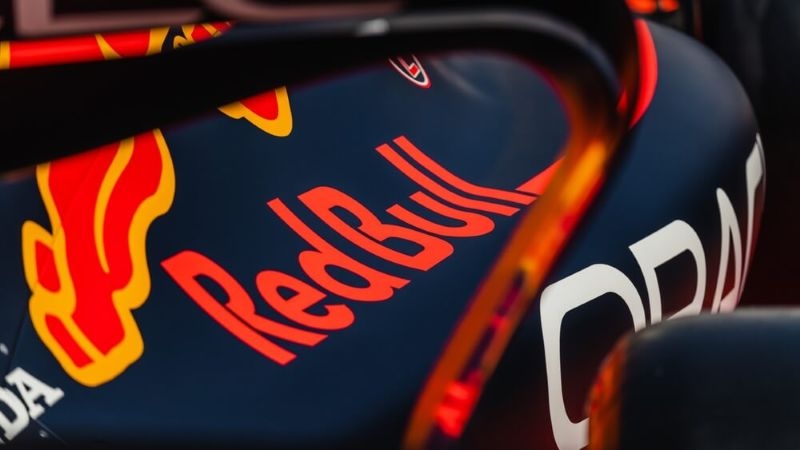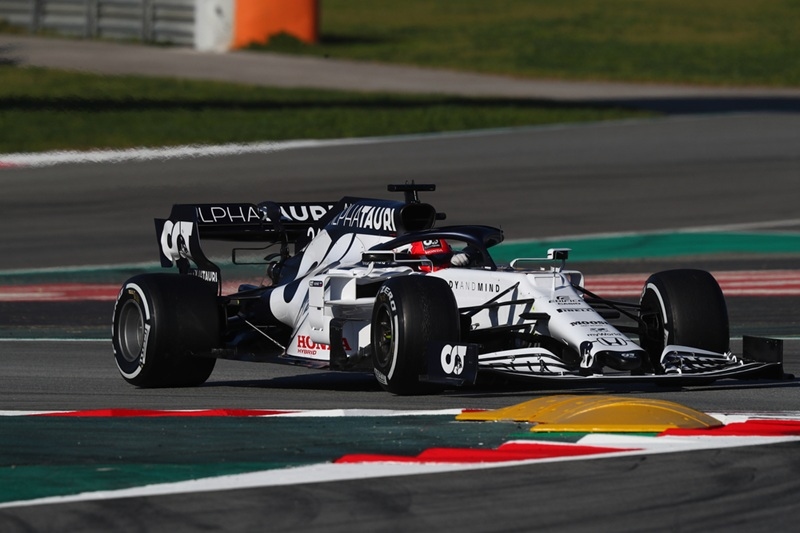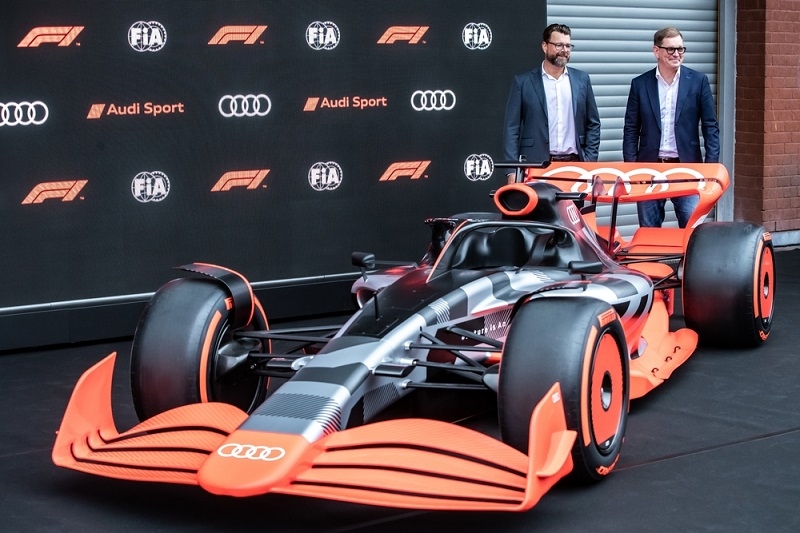The Most Iconic Formula One Cars In Racing History
Formula 1 has stood as the pinnacle of both motorsport and automotive engineering for the better part of the last century. Often hailed as the premier class of international motorsport racing, F1 encompasses numerous teams engaged in the design, fabrication, and street racing of cars adhering to a prescribed formula. This formula undergoes annual modifications meticulously crafted to stimulate innovation and ingenuity within the sport. Consequently, this environment fosters the creation of a plethora of cutting-edge technologies with far-reaching implications for the automotive industry. Successful development of a Formula 1 car can thus exert a positive influence on both the marketing and advancement of vehicles across the industry. While enthusiasts may readily gravitate towards their favorite F1 team or machine, presented here are ten of the most iconic Formula 1 cars to date.
1. Red Bull RB19
Year: 2023
Victories: 21 out of 22
Win rate: 95%
Pole positions: 14 out of 22
Podium finishes: 30 out of 42
Constructors' championship secured in round: 16 out of 22
Although Lewis Hamilton's praise of the RB19 as the fastest F1 car he's witnessed disregards rule alterations since the lap-record-setting Mercedes W11, it undoubtedly marked the pace in the new ground-effect era.
2. McLaren MP4/4
Year: 1988
Victories: 15 out of 16
Win rate: 94%
Pole positions: 15 out of 16
Podium finishes: 25 out of 32
Constructors' championship secured in round: 11 out of 16
The McLaren MP4/4 stands as one of McLaren's most triumphant Formula 1 cars. Developed in collaboration with Honda, this model featured a carbon fiber honeycomb monocoque, double wishbone suspension, and a 6-speed manual transmission.
3. Mercedes F1 W07 Hybrid
Year: 2016
Victories: 19 out of 21
Win rate: 90%
Pole positions: 20 out of 21
Podium finishes: 33 out of 42
Constructors' championship secured in round: 17 out of 21
While the W05 marked Mercedes-Benz's fifth entry into F1, it represented their inaugural Championship-winning iteration. Engineered by top-tier F1 specialists, the W05 was Mercedes' maiden hybrid-powered F1 car, boasting a 1.6-liter Hybrid V6 engine producing over 800 hp, complete with an electric motor and ERS system for added thrust.
4. Ferrari F2002

Year: 2002
Victories: 14 out of 17 (14 out of 15 stars for the car)
Win rate: 88% (93%)
Pole positions: 8 out of 17
Podium finishes: 25 out of 30/34
Constructors' championship secured in round: 13 out of 17
Among the most triumphant and renowned Formula 1 cars in recent memory stands Ferrari's F2002. This masterpiece was meticulously crafted by Scuderia Ferrari Marlboro for the 2002 Formula 1 World Championship season, succeeding the F2001. The F2002 introduced a naturally aspirated 3-liter V10 engine paired with a novel 7-speed automatic gearbox.
5. Alfa Romeo 158
Year: 1950
Victories: 6 out of 7
Win rate: 86%
Pole positions: 6 out of 7
Podium finishes: 12 out of 18/21
Bolstered by the formidable duo of Giuseppe Farina and Juan Manuel Fangio, Alfa Romeo dominated the inaugural season of the modern world championship with the exceptional Alfa Romeo 158. Originating in 1938, this marvel of engineering showcased remarkable evolution and a power output of 350bhp, contributing significantly to its enduring success. Moreover, in an era characterized by minimal competition and disparate budgets, the meticulous development and financial investment in the 158 were evident, with Alfa Romeo securing victory in every race entered, often lapping every non-Alfa Romeo car save for two grand prix.
6. Mercedes F1 W05 Hybrid
Year: 2014
Victories: 16 out of 19
Win rate: 84%
Pole positions: 18 out of 19
Podium finishes: 31 out of 38
Constructors' championship secured in round: 16 out of 19
Although the W05 marked the fifth iteration of F1 car from Mercedes-Benz, it etched its name as the brand's maiden Championship-winning model. Crafted by some of the most illustrious F1 minds, the W05 heralded Mercedes' debut into hybrid-powered F1 machinery. Featuring a 1.6-liter Hybrid V6 engine boasting over 800 hp, complemented by an electric motor and ERS system, it symbolized a new era of dominance for the team.
7. Mercedes F1 W06 Hybrid

Year: 2015
Victories: 16 out of 19
Win rate: 84%
Pole positions: 18 out of 19
Podium finishes: 32 out of 38
Constructors' championship secured in round: 15 out of 19
Following Mercedes' dominant performance in 2014, the W06 represented an evolutionary step from its predecessor, prompting Lewis Hamilton to remark, "it is difficult to pick up any differences" at the time. Mercedes opted for minimal alterations, a decision vindicated by their continued success. The Silver Arrows secured pole position for the initial 12 races, winning 10 of them, while Sebastian Vettel claimed victory in the remaining two. Their third defeat of the season came in Singapore, also at the hands of Vettel, before Hamilton and Rosberg each secured three wins to conclude the campaign.
Also read: Verstappen Wins F1 Vegas Prix 2023 After Turbulent Thriller
8. Ferrari F2004
Year: 2004
Victories: 15 out of 18
Win rate: 83%
Pole positions: 12 out of 18
Podium finishes: 29 out of 36
Constructors' championship secured in round: 13 out of 18
Michael Schumacher set a then-record for the most points in a season (148), driving the F2004 en route to his seventh and final championship in F1. While bearing similarities to its predecessor, the F2002, the F2004 featured notable modifications, including an enlarged rear wing, redesigned rear suspension to reduce tire wear, and a downsized exhaust. New regulations necessitated a redesigned gearbox for enhanced durability over race weekends, while electronic driver aids like launch control were outlawed. It also helped with several overtakes.
9. Ferrari 500
Year: 1952 & 1953
Victories: 13 out of 16
Win rate: 81%
Pole positions: 13 out of 18
Podium finishes: 20 out of 36
In 1952, with Alfa Romeo's withdrawal from F1, Ferrari emerged as the dominant force in the championship, thriving under the switch to F2 regulations to bolster grid numbers. The Ferrari 500, powered by a two-liter engine, continued Ferrari's supremacy into 1953, winning nearly every race it contested. The streak was interrupted only by Juan Manuel Fangio's dramatic last-lap victory for Maserati at Monza in the season finale. Notably, the Ferrari 500 did not compete at Indianapolis, where regulations differed despite its inclusion in the championship.
10. Red Bull RB18
Year: 2022
Victories: 17 out of 22
Win rate: 77%
Pole positions: 8 out of 22
Podium finishes: 28 out of 44
Constructors' championship secured in round: 19 out of 22
Red Bull's achievement with the RB18 in 2022 is remarkable, given their later commencement of development compared to their competitors. The car's standout feature was its aggressive sidepod design, crucial for generating aerodynamic load. This design facilitated direct airflow onto the rear wheels, enhancing downforce consistently under braking, a feature subsequently emulated by other teams throughout the season.
Conclusion
As we've explored the most iconic Formula One cars in racing history, it becomes evident that each machine represents a unique chapter in the ongoing narrative of motorsport excellence. From the Ferrari F2002's unrivaled success in the early 2000s to the Mercedes F1 W05 Hybrid's groundbreaking hybrid powertrain, these cars embody the relentless pursuit of innovation and performance that defines Formula One.
This content was created by AI




